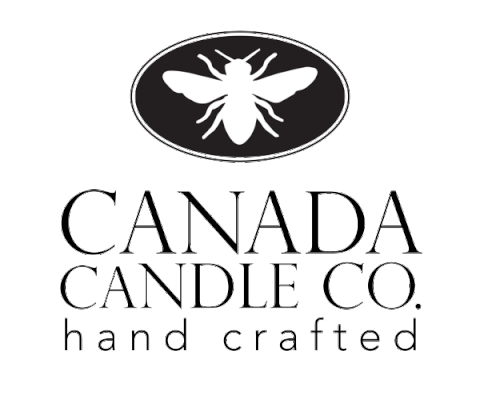Health Benefits of Bee Pollen
Bee pollen has been used as a nutritional food source long before the invention of paper.
It has been well documented that adding bee pollen to your diet supports virtually every body system, with emphasis on the reproductive, immune and nervous systems.
In fact, scientific studies have shown that bee pollen is the most complete food available.
It contains over 250 biologically active substances, including proteins, carbs, lipids, fatty acids, vitamins, minerals, enzymes and antioxidants. Bee pollen granules consist of approximately:
- Carbs: 40%
- Protein: 35%
- Water: 4–10%
- Fats: 5%
- Other substances: 5–15%
The latter category includes vitamins, minerals, antibiotics and antioxidants.
Boosts Immunity and Kills Bacteria
Bee pollen may boost your immune system, helping you avoid illnesses and unwanted reactions.
For one, research has shown that it may reduce the severity and onset of allergies.
In one study, bee pollen was shown to significantly reduce the activation of mast cells. Mast cells, when activated, release chemicals that trigger an allergic reaction.
Also, several test-tube studies have confirmed that bee pollen has strong antimicrobial properties.
Bee pollen extract was found to kill potentially harmful bacteria such as E. coli, Salmonella, Pseudomonas aeruginosa, as well as those that cause staph infections.
Antioxidants
Bee pollen is loaded with a wide variety of antioxidants, among them flavonoids, carotenoids, quercetin, kaempferol and glutathione.
Antioxidants protect your body against potentially harmful molecules called free radicals. Damage by free radicals is linked to chronic diseases such as cancer and type 2 diabetes.
Studies have shown that bee pollen antioxidants can reduce chronic inflammation, eliminate harmful bacteria, fight infections and combat the growth and spread of tumors.
Weight Management
Bee pollen is particularly beneficial to consume a tsp. or so 1/2 hour prior to meals, as it is mostly readily absorbed on an empty stomach, while quenching pre-meal hunger at the same time. It satisfies the body’s nutritional needs and is an excellent snack food in between meals.
May Lower Heart Disease Risk Factors
Both high blood lipids and high blood cholesterol are linked to an increased risk of heart disease. Interestingly, bee pollen may lower these risk factors.
For instance, some studies have shown that bee pollen extracts can lower blood cholesterol levels, especially “bad” LDL cholesterol.
In people with nearsightedness caused by clogged arteries, bee pollen supplements lowered blood cholesterol levels, which increased their field of vision.
Additionally, antioxidants in bee pollen may protect lipids from oxidizing. When lipids oxidize they can clump together, restricting blood vessels and raising your heart disease risk.
May Boost Liver Function and Protect Your Liver From Toxic Substances
Your liver is a vital organ that breaks down and removes toxins from your blood.
Studies have found that bee pollen may enhance its detoxifying abilities.
In older subjects, bee pollen boosted the liver’s antioxidant defense and removed more waste products, such as malondialdehyde and urea, from the blood.
Other studies show that bee pollen antioxidants safeguard the liver against damage from several toxic substances, including drug overdoses. Bee pollen promotes liver healing as well.
Anti-Inflammatory Properties
Bee pollen has been used traditionally to reduce inflammation and swelling.
In fact, its anti-inflammatory effects have been compared to several nonsteroidal anti-inflammatory drugs, such as phenylbutazone, indomethacin, analgin and naproxen.
Bee pollen packs several compounds that can reduce inflammation and swelling, including the antioxidant quercetin, which lowers the production of inflammatory omega-6 fatty acids, such as arachidonic acid.
What’s more, plant compounds in bee pollen may suppress biological processes that stimulate the production of inflammatory hormones such as tumor necrosis factor (TNF).
Wound Healing and Infection Prevention
Bee pollen has anti-inflammatory and antioxidant properties, which may aid your body in wound healing.
For instance, research found that bee pollen extract was similarly effective at treating burn wounds as silver sulfadiazine, a gold standard in burn treatment, and caused far fewer side effects.
Another study showed that applying a balm containing bee pollen onto a burn significantly accelerated healing over standard medicines.
Bee pollen’s antimicrobial properties may also prevent infections, a major risk factor that can compromise the healing process for scrapes, cuts, abrasions and burns.
Ease Menopausal Symptoms
Menopause, which marks the cessation of menstruation in women, is often accompanied by uncomfortable symptoms such as hot flushes, night sweats, mood changes and sleep disturbances.
Studies show that bee pollen may alleviate several menopausal symptoms.
In one study, 71% of women felt that their menopausal symptoms improved while taking bee pollen.
In another study, 65% of women taking a pollen supplement experienced fewer hot flashes. These women indicated other health improvements as well, such as better sleep, reduced irritability, less joint pain and improved mood and energy.
Moreover, a three-month study showed that women taking bee pollen supplements experienced significantly fewer menopausal symptoms. In addition, these supplements helped lower “bad” LDL cholesterol and raise “good” HDL cholesterol.
Improve Nutrient Utilization, Metabolism and Longevity
Some evidence suggests bee pollen may improve your body’s utilization of nutrients.
For instance, 66% more iron was absorbed when pollen was added to their diet. This uptick is likely due to the fact that pollen contains vitamin C and bioflavonoids, which boost iron absorption.
Additionally, when fed pollen more calcium and phosphorus was absorbed from their diet. Pollen contains high-quality proteins and amino acids that may aid such absorption.
Other studies have demonstrated that bee pollen may improve muscle growth, speed up the metabolism and promote longevity.
Consumption Suggestions
Is Bee Pollen Safe?
Bee pollen is safe for most people but if you have pollen allergies be cautious. Bee pollen can cause a serious allergic reaction in people with bee or pollen allergies.
Bee pollen is not safe for pregnant women. A woman should also avoid using bee pollen if she is breastfeeding.
Bee pollen may cause increased bleeding if taken with certain blood thinners like warfarin. Check with your doctor before taking bee pollen if you take any medications, over-the-counter medicines, or herbals.
